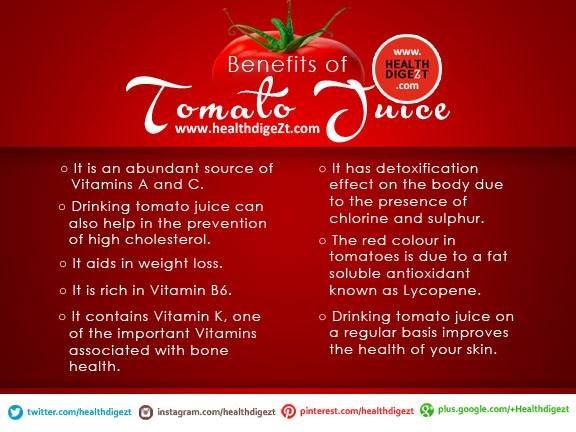
Contents
Is Drinking Tomato Juice Good for You?
Tomato juice is widely consumed and considered nutritious in many countries. While it can be a healthy alternative to sugary drinks, there are some potential negative effects associated with its consumption. However, when consumed in moderation, it can be a healthy choice.
Research suggests that drinking tomato juice daily can help prevent certain illnesses. However, it’s not advisable to drink it regularly as it may have a laxative effect. Instead, it’s recommended to consume it every other day to aid in nutrient absorption.
Due to its high acidity, consuming too much tomato juice can cause gastrointestinal distress. It’s also not suitable for those on a diet.
How Nutritious is Tomato Juice?
Raw tomato juice is a cost-effective and healthy homemade drink with numerous health benefits. It’s rich in vitamins and minerals, quick to prepare, and delicious.
Tomato juice is low in fat and cholesterol but packed with vitamins and minerals. It consists of approximately 95% water and 5% carbs, fibers, and minerals.
| Water | 93 grams |
| Calories | 17 |
| Energy | 73 kJ |
| Total fat | 5 grams |
| Ash | 1 gram |
| Total carbohydrates | 4 grams |
| Sugars | 3 grams |
| Glucose (dextrose) | 1 gram |
| Fructose | 1 gram |
| Calcium, Ca | 10 mg |
| Magnesium, Mg | 11 mg |
| Phosphorus, P | 18 mg |
| Potassium | 229 mg |
| Sodium | 10 mg |
| Copper, Cu | 6 mg |
| Manganese, Mn | 7 mg |
| Vitamin C, total ascorbic acid | 18 mg |
| Folate, total | 20 mcg |
| Folate, food | 20 mcg |
| Folate, DFE | 20 mcg |
| Choline, total | 6 mg |
| Vitamin A, IU | 450 IU |
| Vitamin A, RAE | 23 mcg |
| Vitamin K (phylloquinone) | 2 mcg |
| Fatty acids, total saturated | 8 grams |
| Fatty acids, total monounsaturated | 8 grams |
| 18:1 undifferentiated | 8 grams |
| Tryptophan | 5 grams |
| Threonine | 1 gram |
| Isoleucine | 1 gram |
| Leucine | 2 grams |
| Lysine | 2 grams |
| Methionine | 4 grams |
| Cystine | 4 grams |
| Valine | 1 gram |
| Arginine | 1 gram |
| Aspartic acid | 9 grams |
| Proline | 1 gram |
| Serine | 1 gram |
| Carotene, beta | 270 mcg |
| Lycopene | 9,037 mcg |
| Lutein + zeaxanthin | 60 mcg |
Tomato juice is also a rich source of the following nutrients:
- Vitamins A, C, and B6
- Calcium
- Iron
- Magnesium
QUESTION
7 Benefits of Drinking Tomato Juice
Tomato juice offers various health benefits. It provides instant energy and boosts mood. It aids in digestion and treats anemia. With its similarity in taste to tomato soup, it’s a great way to start your day.
The seven proven benefits of drinking tomato juice include:
- Improves gut health: Tomato juice nutrients have a positive effect on the gut microbiome, which impacts overall health.
- Enhances the immune system: Tomato juice is rich in vitamin C, which aids iron absorption, supports the immune system, and has anti-cancer properties.
- Rich source of lycopene: Tomato juice contains carotenoids, including lycopene, a potent antioxidant that protects against cancer and atherosclerosis. Lycopene in processed tomatoes is easily absorbed.
- Great for your heart: Lycopene in tomato juice contributes to heart protection by reducing LDL cholesterol levels and preventing atherosclerosis.
- Can replenish electrolytes: Tomato juice is a good source of sodium, an essential electrolyte for muscle repair and cell communication.
- Protects from prostate cancer: Tomato juice, rich in lycopene, may reduce the risk of prostate cancer by 11%.
- Weight loss drink: Tomato juice aids in weight loss by reducing body fat and enhancing satiety due to its high fiber content.
What Are the Potential Downsides of Drinking Tomato Juice?
Tomato juice is generally safe when consumed in moderation, but excessive intake should be avoided, especially by people with underlying health conditions.
However, there are some potential downsides to drinking tomato juice:
- Its natural sugar content may encourage yeast growth in individuals with yeast infections or Candida.
- Due to its acidity, it may worsen acid reflux.
- Excessive salt in tomato juice can cause bloating, water retention, and increase blood pressure.
- People with irritable bowel syndrome should avoid drinking tomato juice on an empty stomach as it may worsen symptoms.
- Other possible side effects include nausea, allergic reactions, and liver dysfunction.
What Is the Best Way to Make Tomato Juice?
Making tomato juice at home is simple using a juicer or blender. You can make it with either fresh or cooked vegetables, depending on your preference.
Raw
- Simply puree or juice the tomatoes. If desired, strain the tomatoes through a sieve for a smoother consistency.
- Some recipes include celery to mellow the flavor, but tomatoes can be juiced on their own.
Cooked
- Wash, de-stem, and core the tomatoes, then cook them for about 20 minutes.
- Allow them to cool, then blend and strain to obtain delicious tomato juice.
Enjoy tomato juice as a refreshing low-sugar drink with meals or as a snack. It pairs well with lunch, especially if vegetables or salad are part of the meal.
Enjoy tomato juice as a refreshing low-sugar drink with meals or as a snack. It pairs well with lunch, especially if vegetables or salad are part of the meal.


